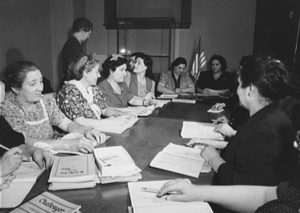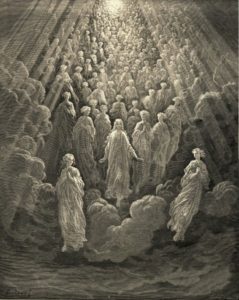On Rights of Citizens, Part 2
It is obvious that a relaxed stance on immigration and/or the dissolution of borders not only creates a national safety issue, it also serves to undermine the state’s own autonomous sovereignty, thereby gravely violating the rights of its citizens who contribute to its welfare and upon whom they rely.
Indiscriminate amnesty, or amnesty on a large scale, compromises the common good of a nation’s citizenry because it does not provide a forum for proof of allegiance, all the while imposing undue burdens of wealth and resources on the citizens who are now forced to support those who cannot support themselves.
This is a failure in charity, and extends well beyond our Christian maxim of welcoming a stranger; for someone trying to be an upright citizen, and who has responsibilities to one’s own fellow citizens first (especially to members of one’s family), this is not a matter of greed versus generosity.
Although we are not blind to the humanitarian element, there are considerable limitations about what reasonably can be done, especially as this seems to have come about with the sanction of those who have care of the common good, an evident abuse of power. The compromise of a state’s integrity helps no one, and serves to increase the domination of many by a few, leading to greater violations of human rights and many bad fruits if this continues, such as an increase in violent crime, drug and human trafficking, and compromised job markets.
Amnesty, then, is no answer, but part of the problem.

Instead, those who have care for the common good at a national level, while protecting its citizens, are obliged before God to see that, in establishing a process for citizenship, the expectation of loyalty to the state is understood, which means suitable and truthful education in the history of the nation and a willingness to adapt to the regular method of commerce and language of its citizens. (As a corollary, governors who have the requisite authority are obliged to make efforts to correct errors in this education within its public institutions.)
At the same time, to the degree it is has power and influence, a sovereign nation has some responsibility to put pressure on other sovereign nations to correct themselves where their public policies violate human rights. This can come in various forms, including sanctions.
Nonetheless, willing collaboration with such nations, economically or otherwise, seems to violate the duty to protect the common good; making another sovereign state the resource, economic, or manufacturing slave of another adversely affects the common good of both, as the knowing violation of human rights in one state cannot be used to safeguard the citizens’ rights of another.
Remember that the common good does not mean that day-to-day life in a country is easy, but that its government is respectful of fundamental human rights to life, liberty, and property, and permits its citizens to advance them.
It is not the objective here to advance a specific solution to these complex problems, but rather to give reasons as to the position we ought to take as Catholics.
The more removed or disconnected citizens become with their nation’s past, the more disrespectful or apathetic they become towards their nation, and the more power revolutionaries take to impose new and politically correct versions of its history upon citizens in an effort to undermine the common good and change its trajectory.
The individual sovereignty of our nation is under attack, and our natural law inclination as citizens to love and preserve the identity of our country of allegiance has been violated.
Nonetheless, we must remember that bad rulers are generally sent by God as a chastisement for the sins of a nation, and a solution is found only in the conversion of the people under such rule.
 As baptized, we must remember that we are citizens of heaven first, and so for us it begins with the basics of respecting the human rights of all, voting for leaders who will support this, and promoting the common good within the framework of the family, the building-block of any society.
As baptized, we must remember that we are citizens of heaven first, and so for us it begins with the basics of respecting the human rights of all, voting for leaders who will support this, and promoting the common good within the framework of the family, the building-block of any society.
By doing so is the connection re-established with the sacrifices of many in the past to secure the good of a nation and by which, in our own cases as citizens, we stand ready to re-occupy it for love of God, neighbor, and country.
October 29, 2020








